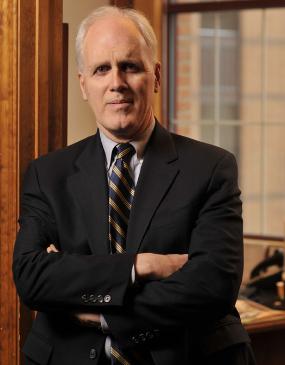
Adoption FAQ
Frequently Asked Questions about Adoption:
Who may adopt?
New York allows adult couples and single persons to adopt, regardless of their marital status or sexual orientation.
A special rule applies to married individuals who have been separated, but who are not divorced. New York will allow a separated individual to undertake an adoption as a single applicant. However, the law requires either (1) a separation agreement, (2) a judgment of separation or (3) a physical separation of at least three years. The non-adopting spouse will not be declared to be the parent of the adopted child.
What are the different types of adoption in New York?
New York law allows both agency and private adoptions. In an agency adoption, the child’s legal custody is first transferred to a licensed adoption agency. Legal custody then passes to the adoptive family. In a private adoption (also called independent adoption), the child’s legal custody passes directly from the biological parent(s) to the adoptive family.
What are the different types of adoption agencies?
There are two types of adoption agencies:
Private Adoption Agencies. A private agency seeks to place children who have been surrendered in writing by their parents, usually at birth. These transfers are almost always voluntary. The advantage of using a private adoption agency is that the family will receive an infant placement. However, private adoption agencies charge fees that can range from approximately $5,000 to over $20,000.
The family needs to make sure that the agency with which the family is working is licensed by the New York Office of Families and Children Services (OCFS). OCFS maintains lists of licensed private adoption agencies with which prospective adoptive families may work. New York does not allow adoptive parents to finalize an adoption in New York under the auspices of a paid unlicensed agency, or an adoption “facilitator.” For the same reason, New York lawyers are not allowed to refer a child or a birth mother to an adoptive family for compensation.
County Social Services Agencies. These municipal agencies seek to place children who are freed for adoption, usually after being placed into foster care. A child is freed for adoption once the county social services agency has obtained the termination of the parental rights of the biological parents through voluntary means or through contested legal proceedings (sometimes known as termination of parental rights proceedings, or TPRs).
One of the advantages of working with a county social services agency is that the cost is minimal. In fact, the family may be entitled to receive a subsidy for raising a foster or adoptive child. However, for those looking to adopt an infant, adoption through a county social services agency may not be suitable, since most children freed for adoption through the foster care system are toddlers or older.
What is an independent adoption?
An independent (or private-placement) adoption in New York occurs where adoptive parents locate biological parents, or are referred to biological parents, without the assistance of an adoption agency. Examples of referral sources are acquaintances, relatives, adoption professionals (but not lawyers or facilitators--see above), doctors, and other individuals who are aware of the biological mother's wish to make an adoption plan and of the adoptive family's wish to adopt. The biological parent(s) may also respond to advertising, publicity or networking initiated by the adoptive family (see below).
What factors enter into a decision whether to use an adoption agency or pursue an independent (private) adoption if an adoptive family wishes to adopt an infant?
In an independent adoption, the adoptive family is responsible for locating an expectant mother. This can be done through personal networking, print/internet advertising, or a combination of the two.
Independent adoption is favored by adoptive families who wish to be free to locate an expectant mother seeking to place a child, and to interact with her without the intervention of an adoption agency. Finally, independent adoption is favored by those who wish to avoid adoption agency fees and who are willing to assume the responsibility of locating a birth family.
Agency adoption is favored by families who do not wish to go through and time and trouble of creating a networking campaign and who do not wish to screen phone calls from possible expectant mothers. Further, families who wish the extra "layer" of professionalism and services of an adoption agency will choose this path.
What are the steps of an adoption? How do these steps differ between private and agency adoptions?
All adoptions share the following four general steps:
1. Pre-adoption qualification of adoptive parents. If the family is adopting privately, the family must normally select a social worker to conduct a home study. The home study and the necessary financial, criminal and child abuse clearances then must be sent to the local court for judicial approval, known as certification. Once the family is certified, the family may take physical custody of a child during the following 18 months.
If the family is working with an agency, the family will undertake a home study from an agency social worker. The agency will collect background social and financial data and will check the family's criminal/child abuse histories. If the family proves to be acceptable, the agency will approve the household for adoption.
Regardless of whether the family is working privately or with an agency, the family's credentials may need to be updated from time to time (usually after the passage of one year).
2. Locating and screening birth parents. The family should plan on obtaining a toll-free telephone number. Many adoptive couples who are working during the day also arrange for incoming calls to be rolled over to their cell or work numbers. Many families also obtain new e-mail addresses.
The family should also plan on taking these types of networking steps: (1) A one-page photo/profile, to be distributed as widely as possible, (2) local advertising (community bulletin boards, stores, laundromats, etc, (3) newspaper advertising, (4) internet advertising, (5) word of mouth.
Please keep in mind that a lawyer may not refer a birth mother to the family for payment, nor may an adoption facilitator. Further, although a licensed agency in another state may refer a birth mother to the family, that agency may not charge a placement fee to the family for the referral unless the agency is also licensed by New York State.
If the family is working with a private adoption agency, the agency will attempt to match prospective birth parents with the family. Some agencies will also encourage the family to do personal networking/advertising.
If the family is working with a county social services agency, the family may indicate to the agency whether they are interested in accepting only pre-adoptive children (those who are freed for adoption) or whether they are interested in accepting foster children (children whose parents still have rights). Although being a foster parent is a challenging role, it is often very rewarding. In addition, a family which has had uninterrupted custody of a foster child for 12 months will receive a preference in adopting the child should the parental rights of the child's parents be later terminated.
3. Working with birth parents/obtaining their consent. For families adopting a newborn, once a birth parent is found, pregnancy and good prenatal care need to be established. It is important to ask the birth mother to sign a medical records release so that this information can be reviewed. It is also important to ask the birth mother to sign a medical history form as well as a social/family history.
It is also important to establish whether the birth mother has insurance coverage or Medicaid. If so, the family will most likely not be responsible for pregnancy-related medical expenses. If not, the family should consider asking the birth mother to obtain coverage, if she may be eligible.
The birth mother may wish to receive certain information from or about the family. For example, she may wish to speak to the family by telephone or to meet with the family. She may also wish to read the home study (most adoptive parents wish to remove identifying information).
The birth mother should be referred to a counselor and/or a lawyer for independent advice. An acceptable hospital plan should be worked out to meet the mother’s needs. Most hospitals will allow the adoptive parents to visit the mother and the baby at the hospital, if that is the mother's wish.
After the child is born, the mother and perhaps the father will sign a document terminating their parental rights. Depending on the type of document signed, the consenting parent may have a period of time after the child’s birth within which to withdraw the consent.
If the family is working with a county social services agency and is a foster family, it is likely that the family may have some knowledge concerning the biological family. However, since the child is in the legal custody of the county, which normally has the right to place a child with a foster family of its choice, the ability of the biological family to "choose" the adoptive family is almost non-existent.
Nonetheless, families who are considering adoptions through a county social services agency should ask their county caseworker for all medical/psychological and behavioral information regarding the child as well as the family.
4. Finalizing the adoption. In a New York private adoption, the adoptive parents must file all of their forms within ten business days of taking custody of the child.
In an agency adoption through a private adoption agency, the agency often files the surrenders with the Court for approval prior to the adoptive parents' filing. This can take anywhere from four to eight weeks. Usually, once the judge approves the surrender and related documents, the adoptive parents may file their paperwork.
In an agency adoption through a county social services agency, the agency will normally notify the family once the rights of the biological parents have been terminated. Depending on whether the termination is voluntary or involuntary, this process can take from several months to several years. Once this process is completed, the adoptive parents may file their adoption papers.
In both private and agency adoptions, the adoptive family must be visited by a social worker or an agency representative during the post-placement period, who informs the Court on how the new child is fitting in with the family.
The papers which the adoptive parents need to file for private and agency adoptions are quite similar.
The actual finalization hearing is rather informal. It involves a single appearance before a judge, and it usually takes less than 30 minutes.
How are rights of a biological parent voluntarily terminated?
Private (Independent) Placements and Placements through Private Adoption Agencies
Virtually all relinquishments by biological parents in private adoptions and adoptions through private adoption agencies are voluntary.
In New York, a parent cannot sign either a consent (to a private adoption) or a surrender (to an agency adoption) until after the child is born.
If the birth mother places her child with an adoption agency in New York, she may sign an out-of-court surrender, which she may revoke within 30 days.
It is important to keep in mind that some private adoption agencies may return the child to the mother if she changes her mind within the 30-day time period, unless she poses a grave danger to the child. Other agencies will require the birth mother to show that it is in the child's "best interests" to be returned to her, even if she changes her mind within the 30-day time period. If the agency challenges the mother's revocation, a best interests hearing is scheduled at which a judge must decide whether it is in the child's interests to be returned to the mother or to remain with the adopting family. The fact that the mother is the biological parent of the child does not give her any advantage at a best interests hearing.
If the birth mother places her child for a private adoption, she must sign an out-of-court consent, which she may revoke within 45 days. The law requires that the birth mother must show best interests in order for the child to be returned to her, even if she seeks to revoke the consent within 45 days.
Accordingly, anyone who is considering adoption, or placing a child for adoption, must become familiar with the differences between the laws on revocation between independent and agency adoptions. Further, if using an authorized agency, they must ascertain the agency's policy on whether or not the agency will (a) automatically return the child to the mother or (b) require a best interests hearing in the case of a revocation within the 30-day period.
An extrajudicial surrender to a private adoption agency becomes final 30 days after it is signed. Similarly, an extrajudicial consent to an independent (private-placement) adoption becomes final 45 days after it is signed. Once a surrender or consent becomes final, it may not be annulled without a showing of coercion, duress or fraud.
If the birth parent decides to appear in court to sign either a judicial surrender (agency adoption) or a judicial consent (private adoption) in the presence of a New York judge, the decision will be final and irrevocable. However, a birth parent is not required to appear in court, and most birth parents prefer to sign papers at the hospital to avoid having to go to court.
An individual who is named as the biological father of the child but who claims that he is not the father may sign a denial of paternity at any time after conception. The denial of paternity is irrevocable, as long as it is signed in the presence of a notary.
There is a possibility that the expectant mother may live in another state. Please familiarize yourself with the fact that each state has its own adoption laws, which may vary greatly from New York's. If the birth parent lives in another state and signs a consent document from that state, his/her rights to withdraw the consent are usually governed by the law of that state, not New York. If our office represents New York adopting parents who are working with an expectant mother who lives in a different state, we will normally ask the mother to sign the consent from whichever state provides a faster termination.
Placements through County Departments of Social Services
As briefly noted above, a parent cannot sign a surrender to a county department of social services agency until after the child is born, nor may parental rights be terminated prior to birth. If a birth parent wishes to voluntarily terminate his/her rights to a county social services agency, the parent may sign a surrender. Although the law provides for both out-of-court surrenders and judicial surrenders, virtually all surrenders handled by county departments of social services are judicial in nature. As such, they are irrevocable when signed.
A birth parent who does not wish to sign a surrender may nonetheless lose parental rights on a variety of contested grounds, including abandonment, permanent neglect, mental illness, and the like. As previously noted, this process is known as a "TPR," or a termination of parental rights proceeding. Briefly stated, the TPR pits the county social services agency against the birth parent. The foster family is not involved at the "fact-finding" stage of the hearing but may become involved at the "dispositional" stage of the hearing.
What other documents are signed by birth parents?
Birth parents are often required to sign an affidavit of financial disclosure, which lists the expenses which have been paid on the birth parents' behalf by the adopting parents. In addition, if the biological father does not voluntarily sign a consent or a surrender, the mother must sign a statement indicating that no individual has met the legal requirement of being a "consent father" (See next section). Biological parents are also required to designate whether they wish to join the Adoption Information Registry, which is a database maintained by the New York Department of Health. If a parent so designates, s/he may be given information regarding the child or placed in contact with the child, but only if the child joins the Adoption Registry after turning 18 years of age.
What are the rights of an individual who is married to the birth mother?
New York law provides that an individual who is married to the birth mother at the time of conception or birth must ordinarily receive notice of the adoption. This is required regardless of whether the husband is actually the biological father. Once the husband receives notice, he has the opportunity to prove that he is the child’s biological father. Accordingly, it is important for all parties to be aware of the birth mother's marital status. If she is married, the husband's rights must be addressed.
What are the rights of unmarried birth fathers in New York?
Notice: An unwed father has the right to be notified of the adoption proceeding if he meets one or more of the following categories: (1) he has been adjudicated by a court as the child's father, (2) he has filed a notice of intent to claim paternity, (3) he is recorded on the birth certificate as the father, 4) he is living with the child and the child's mother and is holding himself out to be the father, (5) he is identified as the father by the biological mother in a written sworn statement, (6) he is married to the mother within six months after the child's birth but prior to her signing of a consent or surrender, (7) he has filed an acknowledgement of paternity.
Consent: Child Less than Six Months of Age: However, an unwed father has the legal right to veto an adoption of an infant (less than six months of age) only if he shows that: (1) during the pregnancy, he emotionally and financially supported the mother and that he planned for the child’s birth, (2) he is ready, willing and able to actually take custody of the child, and (3) that he took every possible avenue to assert his parental rights. A father who meets this test is known as a "consent father," since his consent to the adoption is required. A notice father does not have the right to veto the adoption. He is entitled only to try to persuade the judge that the adoption is not in the best interests of the child.
Consent: Child Older than Six Months of Age: The ability of an unwed father to veto an adoption of a child older than six months of age is measured by a slightly different standard. The father must show that he has supported the child regularly, that he has maintained contact with the child or the child’s custodian and that he has not abandoned the child. This standard is commonly applied in step-parent adoptions, where the biological parent may have had little or no contact with the child over the span of several years.
Does a consenting parent need to be represented by a lawyer?
New York does not require an attorney to represent a consenting or surrendering parent. However, the court does authorize the appointment of a lawyer at public expense for any parent who signs a judicial consent or surrender.From a practical standpoint, it is extremely unwise to have a birth parent sign termination documents without the assistance of a lawyer. A competent lawyer will be able to answer the questions of the birth parent, explain the legal requirements and suggest possible revisions to the paperwork. Further, the decision not to have a lawyer for the birth parent opens up the possibility that the birth parent could later claim that s/he was misled or did not understand the paperwork, leading to needless litigation.Adopting families should be advised that although the law allows them to pay for the legal services of the birth parent's attorney, that attorney owes the birth parent undivided loyalty. If the birth mother or birth father decides not to go through with the adoption, the lawyer must carry out their wishes. The lawyer is not allowed to act as an advocate for the adopting family or to try to persuade the birth parents to go ahead with the adoption plan.
If the birth mother provides the name and address of the birth father in a written sworn statement, the agency or the attorney will try to reach him so that he may agree to the adoption. If he does not agree, the judge who is finalizing the adoption will need some proof that he is aware of the adoption but that he has taken no action to oppose it. However, in New York the mother is not under an obligation to identify the father. In such a case, the adoptive family or the agency may be required to publish a “John Doe” legal notice in a local newspaper before being allowed to finalize the adoption. Please note that the mother's full name does not appear in such an advertisement.We find that we are able to locate birth fathers for their signature in approximately one-third to one-half of the domestic adoptions which we finalize. If the birth mother is willing to identify the father and provide his current whereabouts, it is always the best practice to attempt to communicate with him. Even if he does not wish to sign adoption papers, the Court which is finalizing the adoption needs to be assured that the father is fully aware of the mother’s adoption plan.
Can the baby be discharged directly from the hospital to the adoptive parents?
Yes. All hospitals in the Capital District allow the mother to leave the hospital before the baby is discharged if she wishes. The adoptive parents then pick up the baby directly from the hospital nursery.
What are the costs associated with a domestic adoption?
Private Adoption Agencies. Some agencies will charge a comprehensive fee (usually $15,000 and up) for all adoption expenses. The family need only pay its attorney to help finalize the adoption (usually approximately $1,000-2,000). Other agencies will charge the family a fee for networking/advertising only (approximately $5,000-12,000) and will ask the family to pay the costs commonly associated with a private adoption (medical, legal, and birth parent expenses, listed below).
Public Agency. As noted above, the family will incur minimal costs and may receive a subsidy.
Private Adoptions. The expenses usually associated with private adoptions are as follows:
Home study – approximately $750-1,000.
Medical Expenses – The family will be responsible for the mother’s and the child’s medical expenses if the mother has no insurance coverage. However, many birth mothers have either Medicaid or private insurance. This will cover their medical expenses. In addition, the child’s expenses will usually be covered by Medicaid if the mother is Medicaid-eligible. If not, New York law provides that the adoptive parents’ family medical plan will cover the child’s expenses if the plan is issued by a New York insurance company. Therefore, medical expenses may be minimal.
Attorney for Adoptive Parents – for a private adoption, expect to pay approximately $2,000-3,000.
Attorney for Birth Parent – expect to pay approximately $1,500-2,000.
Mother’s Counseling Services - $0-1,000.
Mother’s Living Expenses - $0-3,000. New York law allows the birth mother to be reimbursed for up to three months of actual living expenses.
Are so-called “contact” agreements valid in New York?
Many adoptive parents and birth parents make arrangements by which contact will be maintained after the child’s placement. The most common type of plan is for the adoptive parents to provide photographs and written updates to the birth mother on a periodic basis. The photographs/letters are sent to the birth family through either the agency or the attorney’s office so that the birth mother remains unaware of the adoptive parents’ last name/address. Visits between the birth parents and the child may also be agreed to.
Post-adoption contact agreements (PACAs) with respect to agency adoptions (whether through private adoption agencies or county social services agencies) are recognized in New York, and recent legislation has made these agreements enforceable if in the child's best interests.
However, the law recognizing PACAs is limited in one unusual respect: the statute applies to agency placements only. With private adoptions, there is no specific legislation recognizing post-adoption agreements. Several court decisions have recognized post-adoption agreements in private-placement adoptions in New York, and their use is becoming widespread in private adoptions at this time.
We have also encountered several courts in which judges are reluctant to recognize PACAs, or will do so only after certain preconditions are met. We approach these adoptions on a case-by-case basis.
What is the Interstate Compact?
The Interstate Compact on the Placement of Children (ICPC) is a law which has been passed by all 50 states. With the exception of adoptions of children between close relatives, the ICPC applies where the birth family and the adopting family live in different states, even if the birth mother travels into New York to give birth.
The ICPC is a procedure by which the social services agencies of both the birth parents' state (known as the "sending" state) and the adoptive family's state (known as the "receiving" state) must review and approve all of the documentation related to the placement.
In a typical ICPC scenario, the birth family's attorney will file the paperwork immediately after the termination documents are signed. Once the sending state has approved the placement, the package is couriered/overnighted to the receiving state's social services agency for approval.
The adoptive family may not bring the baby into their state until both states have given their approvals. Normally, the process takes approximately one week, although shorter/longer times have been experienced.
What papers do the adopting parents receive at finalization?
The court which is finalizing the adoption normally issues an order of adoption and/or a certificate of adoption to the adoptive parents. Most courts provide the documents on the day of finalization, while a few courts send them by mail within several days. These documents prove that the parent-child relationship has been established and that the adoption has been completed.
When does the adoptive family receive the child's birth certificate?
The birth certificate is not processed by the court which finalizes the adoption. Instead, as soon as the adoption is finalized, the court sends a written notice to the vital statistics department of the state of the child's birth. The notice confirms that the adoption has been completed and requests the issuance of a revised birth certificate showing the adoptive child's "new" name, if applicable, and also showing the adoptive parent(s) as the legal parent(s).
The birth certificate is oftentimes mailed directly to the adoptive family within 30-90 days after finalization. If the child was born in New York, there will be no charge for a certified copy of the amended birth record.
However, in certain cases the birth certificate is not generated automatically:
Birth certificate of a child not born in New York state: As noted above, the vital statistics department of the state of the child's birth is notified and makes the appropriate changes to the birth record. However, in most cases, the adoptive parents or their attorney will have to send a written application for a certified copy of the amended birth certificate. There is usually a charge for either the amendment, the new certificate or both.
Birth certificate of a child not born in the United States: The New York State Department of Health will generate a new birth certificate for the child once it receives notification. However, the Amendment Unit will send a letter to the adoptive parents with an application for the new birth record. There is a charge for obtaining the new birth certificate.
Who We Are
Located in New York's capital – Albany, our highly skilled and experienced attorneys are admitted to all state and federal courts in New York, as well as courts in Connecticut, and the United States Supreme Court. We have the experience, knowledge and integrity to represent our clients in a competent, vigorous and professional manner.
Client success is our mission.











